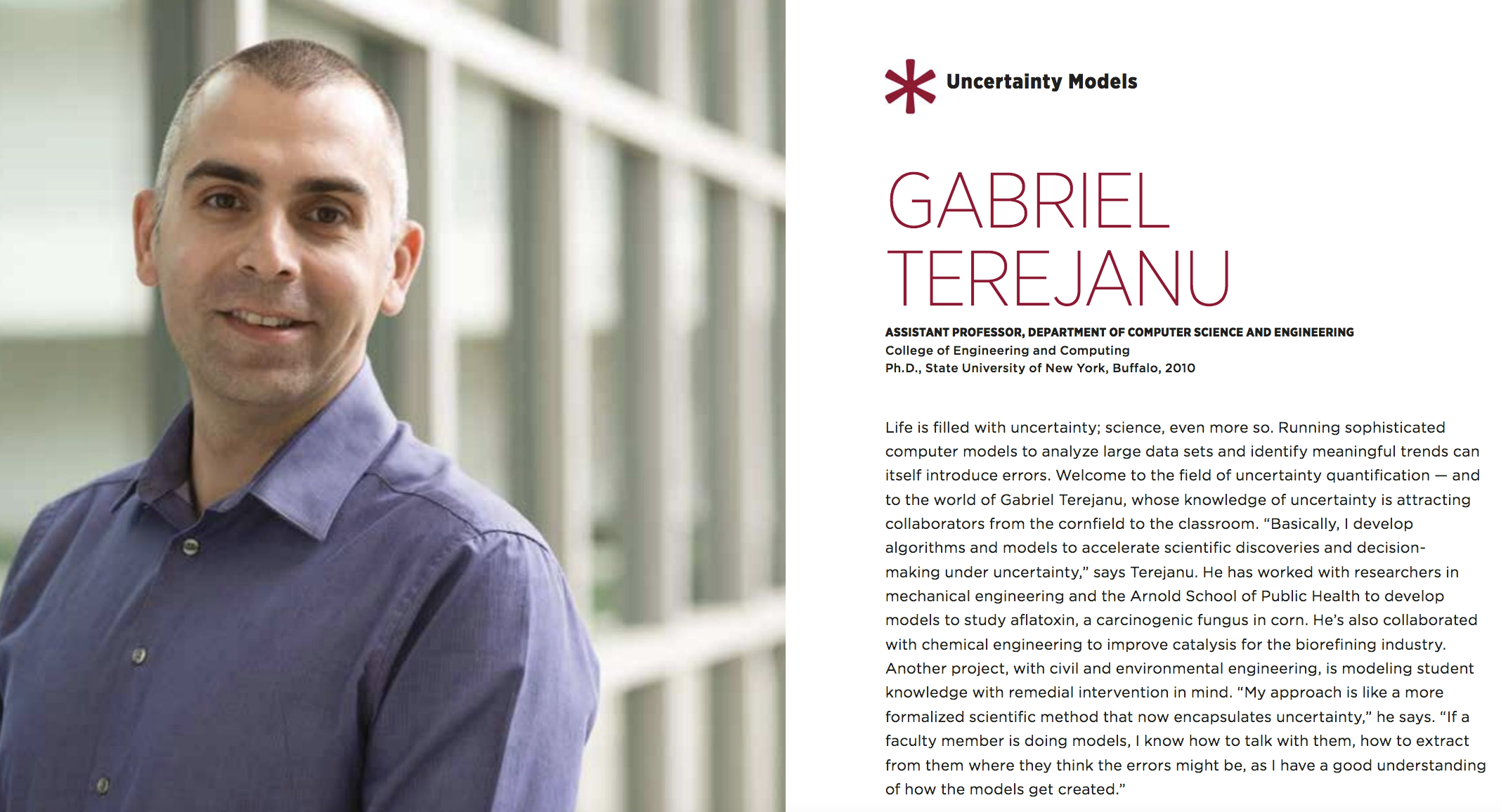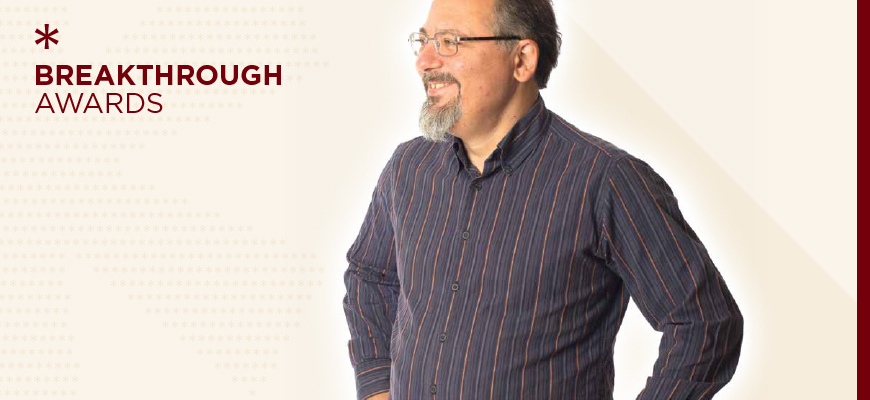We Are Moving to the Storey Building
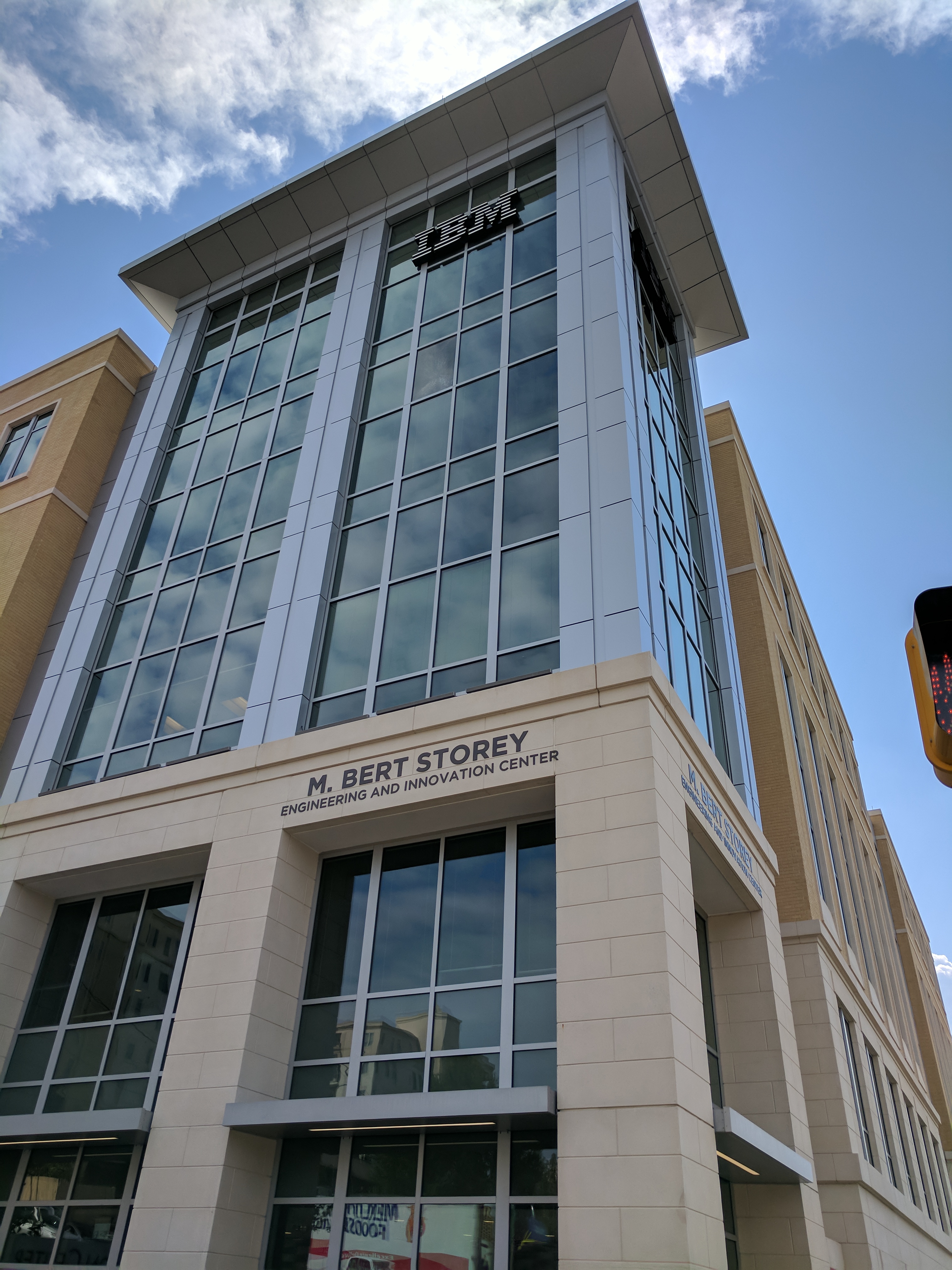
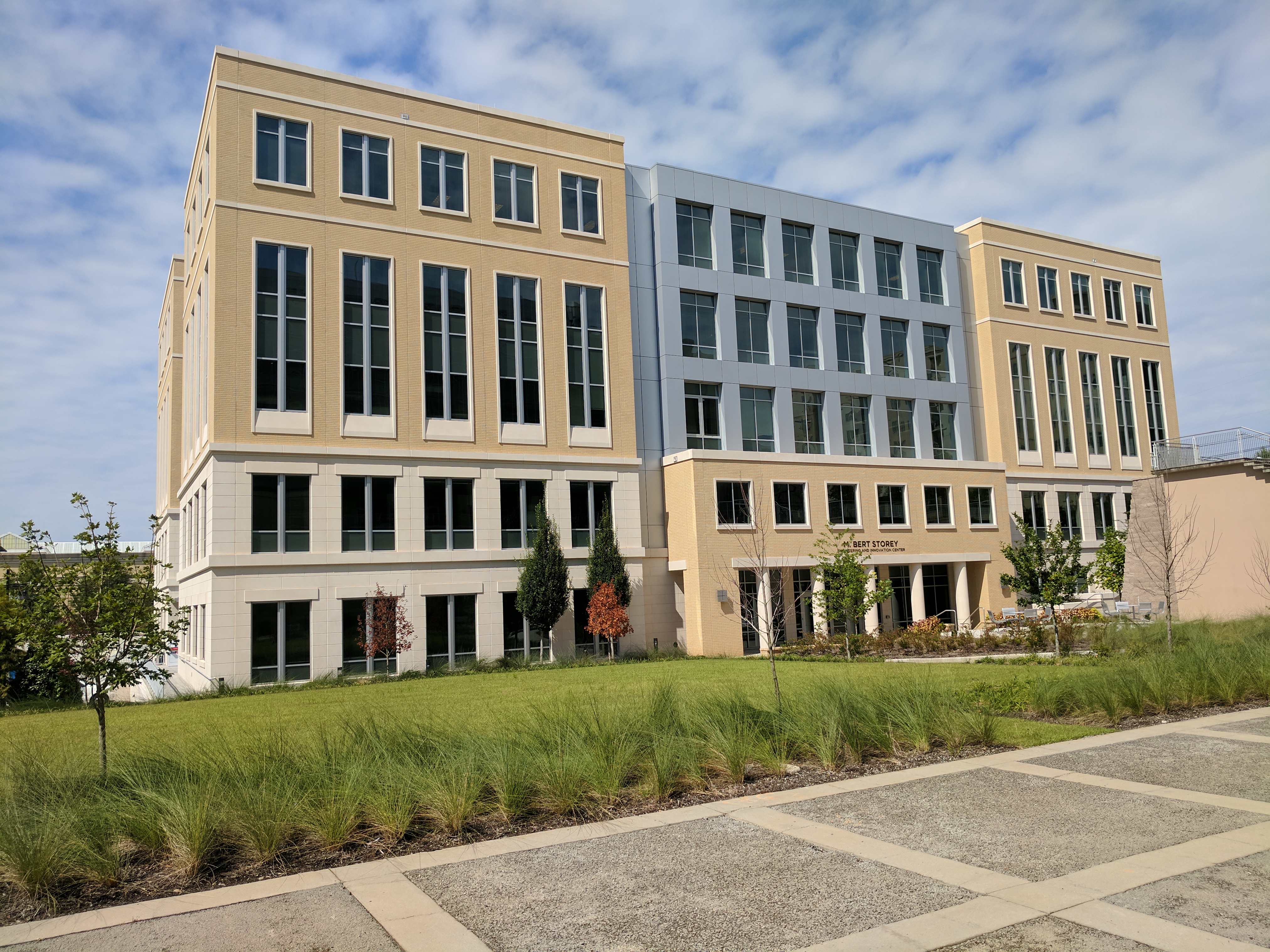 During October 16—19 the CSE Department will be moving to the new M. Bert Storey Engineering and Innovation Center building. The second floor will house CSE faculty offices, research labs, and the main office. The first floor will house additional research labs and a large (70-capacity) classroom. With the Integrated Information Technology department on the first floor and IBM on the third floor, the Storey Innovation Center will become the hub of all Computing and IT for USC.
During October 16—19 the CSE Department will be moving to the new M. Bert Storey Engineering and Innovation Center building. The second floor will house CSE faculty offices, research labs, and the main office. The first floor will house additional research labs and a large (70-capacity) classroom. With the Integrated Information Technology department on the first floor and IBM on the third floor, the Storey Innovation Center will become the hub of all Computing and IT for USC.
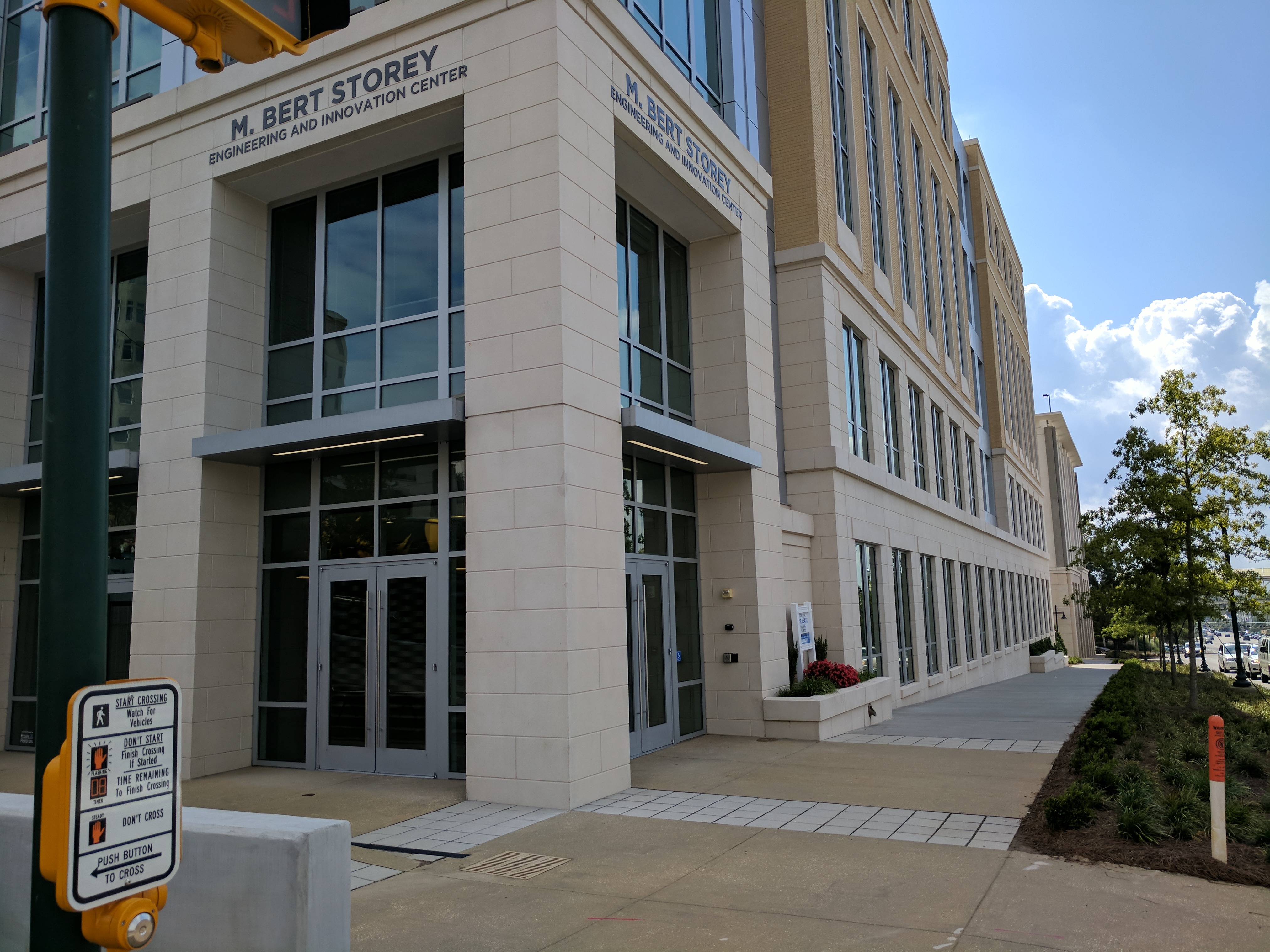 PhotoSphere
PhotoSphereNew Faculty: Dr. Lisa Luo
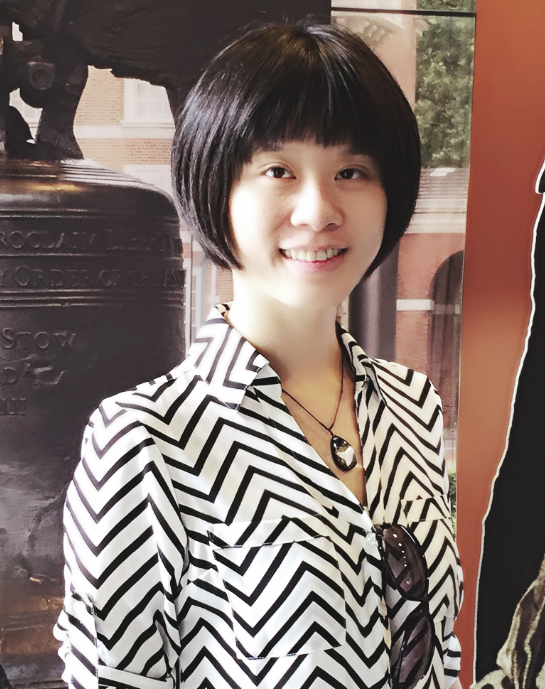 We are happy to welcome Dr. Lannan (Lisa) Luo to the Department. Dr. Luo received her PhD from Penn State University. Her research mainly focuses on software and systems security, including mobile security, IoT security, malware analysis, vulnerability analysis, programming languages, software engineering, and deep learning. She is teaching CSCE 813: Internet Security and recruiting Ph.D. students, master students, summer interns, and visiting scholars to join her lab.
We are happy to welcome Dr. Lannan (Lisa) Luo to the Department. Dr. Luo received her PhD from Penn State University. Her research mainly focuses on software and systems security, including mobile security, IoT security, malware analysis, vulnerability analysis, programming languages, software engineering, and deep learning. She is teaching CSCE 813: Internet Security and recruiting Ph.D. students, master students, summer interns, and visiting scholars to join her lab.New Faculty: Dr. Yonghong Yan
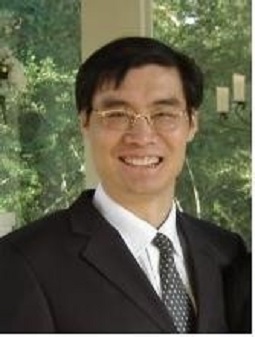 We are happy to welcome Dr. Yonghong Yan to the faculty of the CSE department. Dr. Yan received his PhD. from the University of Houston. His research research interests focus on parallel and high performance computing, parallel programming models and compilers, computer architectures and systems. He will be teaching CSCE 790, a graduate special topics course, this semester for any graduate students interested in learning about parallel and high performance computing.
We are happy to welcome Dr. Yonghong Yan to the faculty of the CSE department. Dr. Yan received his PhD. from the University of Houston. His research research interests focus on parallel and high performance computing, parallel programming models and compilers, computer architectures and systems. He will be teaching CSCE 790, a graduate special topics course, this semester for any graduate students interested in learning about parallel and high performance computing.Bryant and Hoffman Awarded GEM National Consortium Fellowship
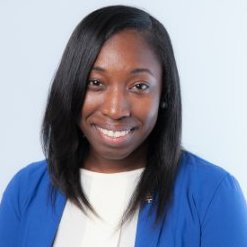
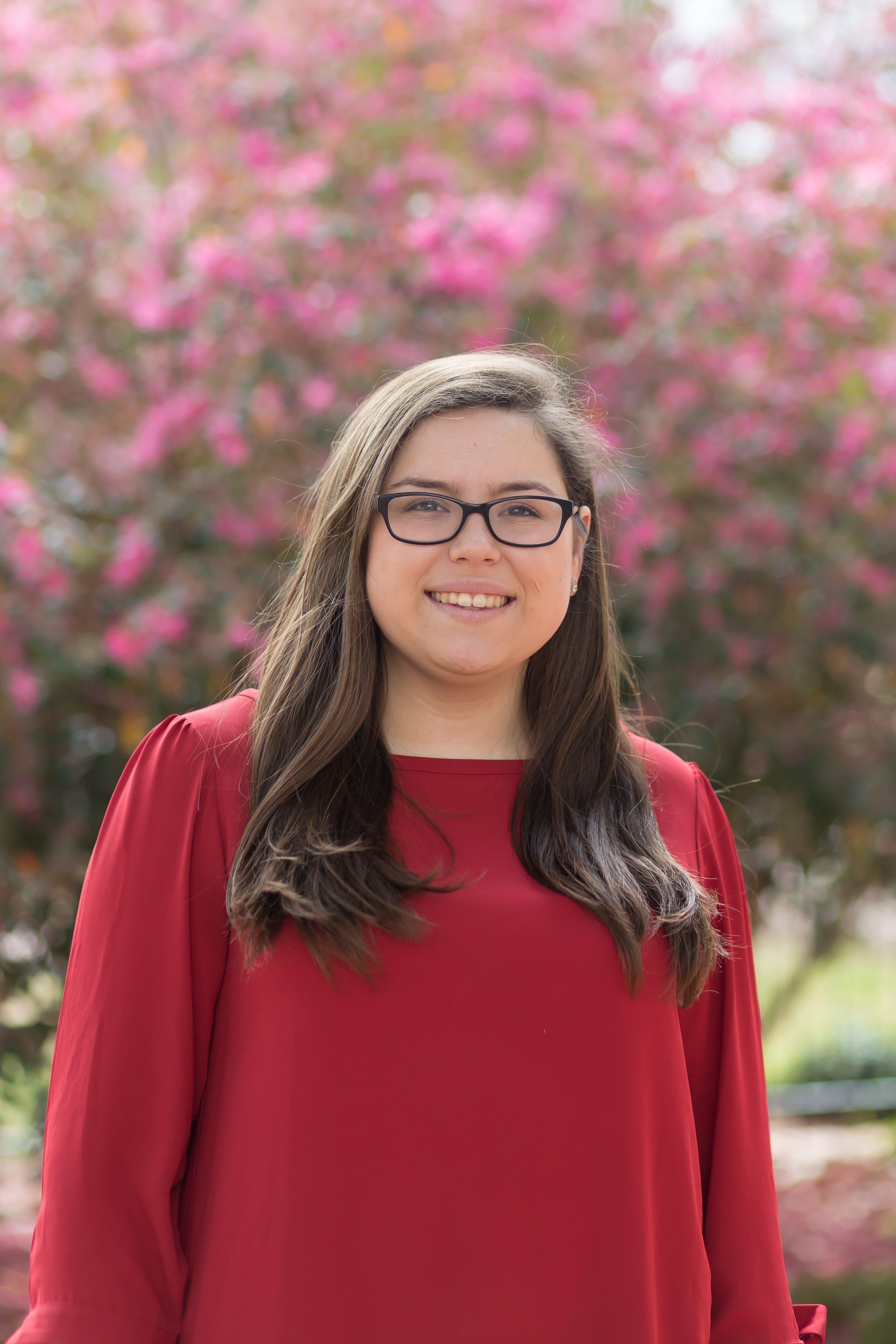 We are proud to announce that De'Aira Bryant and Blakeley Hoffman have each been awarded a GEM National Consortium Fellowship. Both Bryant and Hoffman were selected by Adobe Systems Incorporated, where they will complete the internship component of the fellowship. The GEM program seeks to enhance the value of the nation's human capital by increasing the participation of underrepresented groups at the master's and doctoral levels in engineering and science. The fellowship provides a stipend, tuition assistance, and a paid summer internship in 2017. More than 4,000 GEM Fellowships have been awarded since the program's inception 41 years ago. The announcement from the Fellowship Office:
Bryant graduated this May from the College of Engineering and Computing with a major in Computer Science and a minor in Mathematics. She is the recipient of the Solomon Jackson Jr. Scholarship, the Palmetto Fellows Scholarship, and the Valedictorian Scholarship, as well as the 2016 Lillie J. James Computer Science Award and most recently the 2017 NSF GRFP. Her undergraduate research over the last three years has been in the Assistive Robotics and Technology Lab, under the mentorship of Dr. Jenay Beer, partially funded with a Magellan Scholarship. Much of her work went towards "Ms. An the Robot Tutor," a project involving the use of an NAO humanoid robot as a mathematics tutor for elementary school students. The co-founder and current president of Minorities in Computing at USC, she is also a member of Women in Computing, Phi Beta Kappa National Honor Society, Pi Mu Epsilon Mathematics Honor Society and Alpha Kappa Alpha Sorority, Inc. She has also volunteered with FIRST Robotics Competitions, the Hour of Code, and the CEC Engineering Week Open House for several years. Bryant will intern with Adobe Systems Inc. this summer and begin her PhD in Computer Science at the Georgia Institute of Technology in the fall. Bryant plans to become a university professor of computer science conducting research in the field of human-computer interaction.
Hoffman graduated this May from the South Carolina Honors College with majors in Computer Science and Mathematics. She is the Joseph Land Carolina Scholar, a 2016 Grace Hopper Scholar, a Lieber Scholar and a Palmetto Fellow. During her time as an undergraduate, Hoffman has conducted research exploring the use of humanoid robots as math tutors, algorithms for maximizing social welfare, and machine learning algorithms for autonomous driving. She has published in AAMAS, an internationally recognized conference in multiagent systems, and has presented her research across the country at institutions such as Stanford and UC Berkeley. Hoffman is committed to outreach and diversity in STEM. She is a founding member and the current Co-President of USC's Women in Computing chapter, has co-founded a local Google CS First club, and serves as a College of Engineering and Computing Ambassador. Next year, Hoffman plans to pursue a Masters in Media Arts and Sciences at Massachusetts Institute of Technology and will conduct research to understand how technology is changing the nature of human cooperation and to design technologies to scale up human cooperation.
GEM Fellowship candidates are supported by the University's Office of Fellowships and Scholar Programs, established in 1994 to assist students for national fellowship competitions and by the University of South Carolina's GEM advisor, Dr. Mike Matthews of the College of Engineering and Computing. Of this year's winners, Dr. Matthews noted "De'Aira and Blakely exemplify the spirit of No Limits at the University of South Carolina. They show how much a person can achieve when they seize some of the many opportunities available. Our Department of Computer Science and Engineering is a leader in producing graduates who will help address the urgent need for diversification of the workforce of in our high tech industries." To learn more about national fellowships and competitions visit www.sc.edu/ofsp.
We are proud to announce that De'Aira Bryant and Blakeley Hoffman have each been awarded a GEM National Consortium Fellowship. Both Bryant and Hoffman were selected by Adobe Systems Incorporated, where they will complete the internship component of the fellowship. The GEM program seeks to enhance the value of the nation's human capital by increasing the participation of underrepresented groups at the master's and doctoral levels in engineering and science. The fellowship provides a stipend, tuition assistance, and a paid summer internship in 2017. More than 4,000 GEM Fellowships have been awarded since the program's inception 41 years ago. The announcement from the Fellowship Office:
Bryant graduated this May from the College of Engineering and Computing with a major in Computer Science and a minor in Mathematics. She is the recipient of the Solomon Jackson Jr. Scholarship, the Palmetto Fellows Scholarship, and the Valedictorian Scholarship, as well as the 2016 Lillie J. James Computer Science Award and most recently the 2017 NSF GRFP. Her undergraduate research over the last three years has been in the Assistive Robotics and Technology Lab, under the mentorship of Dr. Jenay Beer, partially funded with a Magellan Scholarship. Much of her work went towards "Ms. An the Robot Tutor," a project involving the use of an NAO humanoid robot as a mathematics tutor for elementary school students. The co-founder and current president of Minorities in Computing at USC, she is also a member of Women in Computing, Phi Beta Kappa National Honor Society, Pi Mu Epsilon Mathematics Honor Society and Alpha Kappa Alpha Sorority, Inc. She has also volunteered with FIRST Robotics Competitions, the Hour of Code, and the CEC Engineering Week Open House for several years. Bryant will intern with Adobe Systems Inc. this summer and begin her PhD in Computer Science at the Georgia Institute of Technology in the fall. Bryant plans to become a university professor of computer science conducting research in the field of human-computer interaction.
Hoffman graduated this May from the South Carolina Honors College with majors in Computer Science and Mathematics. She is the Joseph Land Carolina Scholar, a 2016 Grace Hopper Scholar, a Lieber Scholar and a Palmetto Fellow. During her time as an undergraduate, Hoffman has conducted research exploring the use of humanoid robots as math tutors, algorithms for maximizing social welfare, and machine learning algorithms for autonomous driving. She has published in AAMAS, an internationally recognized conference in multiagent systems, and has presented her research across the country at institutions such as Stanford and UC Berkeley. Hoffman is committed to outreach and diversity in STEM. She is a founding member and the current Co-President of USC's Women in Computing chapter, has co-founded a local Google CS First club, and serves as a College of Engineering and Computing Ambassador. Next year, Hoffman plans to pursue a Masters in Media Arts and Sciences at Massachusetts Institute of Technology and will conduct research to understand how technology is changing the nature of human cooperation and to design technologies to scale up human cooperation.
GEM Fellowship candidates are supported by the University's Office of Fellowships and Scholar Programs, established in 1994 to assist students for national fellowship competitions and by the University of South Carolina's GEM advisor, Dr. Mike Matthews of the College of Engineering and Computing. Of this year's winners, Dr. Matthews noted "De'Aira and Blakely exemplify the spirit of No Limits at the University of South Carolina. They show how much a person can achieve when they seize some of the many opportunities available. Our Department of Computer Science and Engineering is a leader in producing graduates who will help address the urgent need for diversification of the workforce of in our high tech industries." To learn more about national fellowships and competitions visit www.sc.edu/ofsp.Big Data Analytics of HIV Treatment Gaps in South Carolina
Dr. Hu has collaborated with Professor Xiaoming Li (PI) in Health Promotion, Education & Behavior and other USC faculty members to secure an NIH Funded project entitled "Big Data Analytics of HIV Treatment Gaps in South Carolina: Identification and Prediction" and is funded by National Institute of Allergy and Infectious Diseases (NIAID)/NIH.
Machine Vision for Detecting Water Droplets
Backers and Hackers Winners
 The winning team for this year's Backers and Hackers is Mingxiang Zhu, Tieming Geng, and Hongrui Zhang for their app connect2icu, a secure mobile app to assist families while their child is in a neonatal or pediatric intensive care unit. Backers and Hackers is a completely student-run initiative organized by the Entrepreneurship Club and the College of Engineering and Computing at USC. The program brings together Columbia’s entrepreneurial community and USC’s mobile app development students to transform app ideas into reality.
Second place went to Visha Shah, Andrew Freix, and Uday Bhat for their app RedRope, an app that gives users a convenient, affordable option to skip bar entrance lines.
Third place to Rickey Ward and Adam Hogan for their app Noticed, a mobile app that unifies college event discovery and event advertisement
The winning team for this year's Backers and Hackers is Mingxiang Zhu, Tieming Geng, and Hongrui Zhang for their app connect2icu, a secure mobile app to assist families while their child is in a neonatal or pediatric intensive care unit. Backers and Hackers is a completely student-run initiative organized by the Entrepreneurship Club and the College of Engineering and Computing at USC. The program brings together Columbia’s entrepreneurial community and USC’s mobile app development students to transform app ideas into reality.
Second place went to Visha Shah, Andrew Freix, and Uday Bhat for their app RedRope, an app that gives users a convenient, affordable option to skip bar entrance lines.
Third place to Rickey Ward and Adam Hogan for their app Noticed, a mobile app that unifies college event discovery and event advertisement



Xian Wu receives Two Thumbs Up Award
 We are happy to report that Xian Wu, a PhD student in CSE working in the ART Lab, has received the Two Thumbs Up award. Two Thumbs Up awards were created to recognize faculty and staff members across campus who have made a significant difference in a student’s experience at the University of South Carolina. The recipients of these awards are nominated by students with registered with the Office of Student Disability Services.
We are happy to report that Xian Wu, a PhD student in CSE working in the ART Lab, has received the Two Thumbs Up award. Two Thumbs Up awards were created to recognize faculty and staff members across campus who have made a significant difference in a student’s experience at the University of South Carolina. The recipients of these awards are nominated by students with registered with the Office of Student Disability Services.Magellan Award Winners
- Emma Drobina, Pay attention! Re-engaging 5th grade math students using an adaptive robot tutor.
- Judson James, Developing an App to Examine Young Children's Music Development through Serious Gaming
- Abraham Khan, The Computational Complexity of Enumerating the Linear Extensions of a Dimension Two Poset.
- Liudas Panavas, Part Criticality in Inventory Management
- Harrison Engoren, The Probability of Sudoku: The Bounds of the Cardinality of Minimal Fair Sudoku Puzzles
- Noemi Glaeser, Generating Geographic and Temporal Heat Maps of Aflatoxin Incidence using Regularized Linear Models
- Caleb Kisby, Exploring Non-finitely Based Finite Algebras
- Briana Luckey, Distributed Monitoring and Control of Photovoltaic Generation
- Jonathan Senn, Validating in vitro models for Aflatoxin production in maize using a new open database of field sample data
- Charles Daniels, Magellan Apprentice, Generalized Hough Transform on the Tegra X1 Embedded SOC Architecture
- De'Aira Bryant, Engaging Minorities in Computer Science via Online Game & Robot Hip-Hop Dance
- Bethany Janos, Monitoring Smoking Behavior through the use of Smartwatch Applications
- Molly Carlson, Enhancing Features of the Lone Woman Archive: An Interdisciplinary Approach
Nathaniel and Theodore Stone Selected as SIGCOMM Student Scholars
SPARC Award for Rasha Karakchi
De’Aira Bryant Awarded NSF Graduate Fellowship
We are proud to announce that De’Aira Bryant, a Senior undergraduate student working in Dr. Jenay Beer’s Assistive Robotics and Technology Lab (ARTLab), has been awarded an NSF Graduate Research Fellowship Program (GRFP) Fellowship. The fellowship provides financial support of $34,000/year for any 3 year period over the next 5 years. De’Aira’s selection as an NSF Graduate Fellowship awardee is a tremendous accomplishment. Congratulations De’Aira!!
She is also featured in this USC News article and video.
March 17, 2017 The National Science Foundation (NSF) today named 2,000 individuals as this year's recipients of awards from its Graduate Research Fellowship Program (GRFP). GRFP offers fellowships to applicants selected through a national competition. "This unique program has nurtured economic innovation and leadership in the U.S. continuously since 1952 -- by recruiting and supporting outstanding students with high potential in science, technology, engineering and mathematics very early in their graduate training," said Jim Lewis, NSF acting assistant director for Education and Human Resources. "These talented individuals have gone on to make important discoveries, win Nobel Prizes, train many generations of American scientists and engineers and create inventions that improve our lives." Awardees -- chosen from over 13,000 applicants -- represent a wide range of scientific disciplines and come from all states, as well as the District of Columbia, and U.S. commonwealths and territories. The group of 2,000 awardees is diverse, including 1,158 women, 498 individuals from underrepresented minority groups, 75 persons with disabilities, 26 veterans and 726 undergraduate seniors. The awardees come from 449 baccalaureate institutions. GRFP supports the graduate study of U.S. citizens, nationals and permanent residents attaining research-based master's and doctoral degrees in science, technology, engineering and mathematics (STEM) or in STEM education at institutions located in the United States. Applicants are selected through the NSF peer review process. A complete list of those offered the fellowship for 2017 is available on FastLane. For general information about the program, visit NSF's GRFP website. About GRFP GRFP is a critical program in NSF's overall strategy to develop a globally engaged workforce necessary to ensure the nation's leadership in advancing science and engineering (S&E) research and innovation. Former NSF fellows have made transformative breakthroughs in S&E, become leaders in their chosen careers, and been honored as Nobel laureates. A high priority for NSF and GRFP is increasing the diversity of the S&E workforce, including geographic distribution, and the participation of women, underrepresented minorities, persons with disabilities and veterans. GRFP provides three years of financial support within a five-year fellowship period ($34,000 annual stipend and $12,000 cost-of-education allowance to the graduate institution). That support is for graduate study that leads to a research-based master's or doctoral degree in S&E. Fellows have opportunities for international research collaborations through the Graduate Research Opportunities Worldwide (GROW) initiative and professional career development with federal internships provided through the Graduate Research Internship Program (GRIP). GRFP also supports NSF's Career-Life Balance (CLB) Initiative (NSF 13-099). The National Science Foundation (NSF) today named 2,000 individuals as this year's recipients of awards from its Graduate Research Fellowship Program (GRFP). GRFP offers fellowships to applicants selected through a national competition. "This unique program has nurtured economic innovation and leadership in the U.S. continuously since 1952 -- by recruiting and supporting outstanding students with high potential in science, technology, engineering and mathematics very early in their graduate training," said Jim Lewis, NSF acting assistant director for Education and Human Resources. "These talented individuals have gone on to make important discoveries, win Nobel Prizes, train many generations of American scientists and engineers and create inventions that improve our lives." Awardees -- chosen from over 13,000 applicants -- represent a wide range of scientific disciplines and come from all states, as well as the District of Columbia, and U.S. commonwealths and territories. The group of 2,000 awardees is diverse, including 1,158 women, 498 individuals from underrepresented minority groups, 75 persons with disabilities, 26 veterans and 726 undergraduate seniors. The awardees come from 449 baccalaureate institutions. GRFP supports the graduate study of U.S. citizens, nationals and permanent residents attaining research-based master's and doctoral degrees in science, technology, engineering and mathematics (STEM) or in STEM education at institutions located in the United States. Applicants are selected through the NSF peer review process. A complete list of those offered the fellowship for 2017 is available on FastLane. For general information about the program, visit NSF's GRFP website. About GRFP GRFP is a critical program in NSF's overall strategy to develop a globally engaged workforce necessary to ensure the nation's leadership in advancing science and engineering (S&E) research and innovation. Former NSF fellows have made transformative breakthroughs in S&E, become leaders in their chosen careers, and been honored as Nobel laureates. A high priority for NSF and GRFP is increasing the diversity of the S&E workforce, including geographic distribution, and the participation of women, underrepresented minorities, persons with disabilities and veterans. GRFP provides three years of financial support within a five-year fellowship period ($34,000 annual stipend and $12,000 cost-of-education allowance to the graduate institution). That support is for graduate study that leads to a research-based master's or doctoral degree in S&E. Fellows have opportunities for international research collaborations through the Graduate Research Opportunities Worldwide (GROW) initiative and professional career development with federal internships provided through the Graduate Research Internship Program (GRIP). GRFP also supports NSF's Career-Life Balance (CLB) Initiative (NSF 13-099).
It is Possible to Hack a Phone With Sound Waves
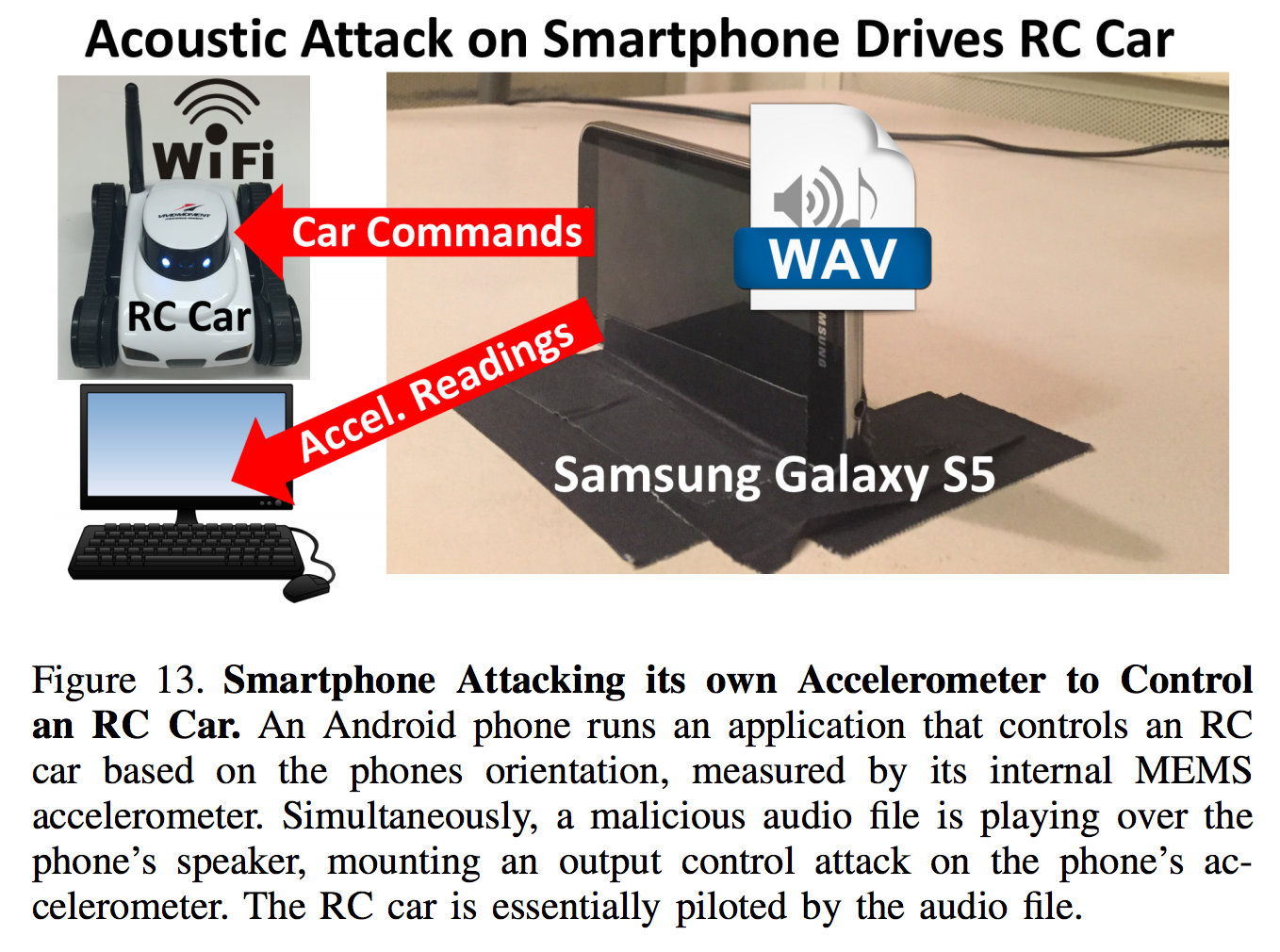 This NY Times article describes research by Dr Wenyuan Xu and colleages at the University of Michigan into how to maliciously control a phone's accelerometer using sound waves.
This NY Times article describes research by Dr Wenyuan Xu and colleages at the University of Michigan into how to maliciously control a phone's accelerometer using sound waves.
In their paper, the researchers describe how they added fake steps to a Fitbit fitness monitor and played a "malicious" music file from the speaker of a smartphone to control the phone’s accelerometer. That allowed them to interfere with software that relies on the smartphone, like an app used to pilot a radio-controlled toy car.The video below explains their research. The image is taken from their paper.
Dr. Wang Receives NSF Award for Design Reconstruction Algorithm
 Dr. Song Wang has received a research grant award from the National Science Foundation for his project entitled "Algorithm Development for Reconstruction of Design Elements". This is an interdisciplinary study between archaeology and computer science to develop and disseminate a program that can identify the full artistic design from fragmented cultural heritage objects. Specifically, it will develop the algorithm to identify the designs of the carved wooden paddles of the Southeastern Woodlands from unearthed pottery sherds.
Research also described in USC News: Fingerprints to the past.
Image from
Dr. Song Wang has received a research grant award from the National Science Foundation for his project entitled "Algorithm Development for Reconstruction of Design Elements". This is an interdisciplinary study between archaeology and computer science to develop and disseminate a program that can identify the full artistic design from fragmented cultural heritage objects. Specifically, it will develop the algorithm to identify the designs of the carved wooden paddles of the Southeastern Woodlands from unearthed pottery sherds.
Research also described in USC News: Fingerprints to the past.
Image from
